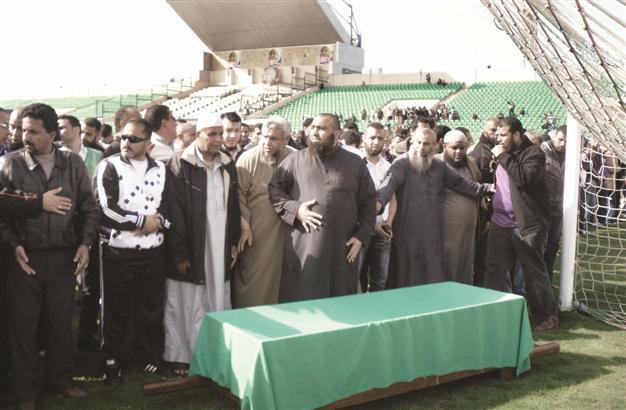Chaos seizes streets and politics of Egypt
CAIRO

Egyptians stand in front of the coffin of Belal Mamdouh, a teenager who was killed by a gunshot during clashes between football fans and soldiers, at a stadium in Port Said.
resh clashes erupted in the northern city of Port Said on March 24, after a boy was shot dead in overnight fighting between Egyptian security forces and football fans protesting against a ban on their club, Al-Masry.Protesters pelted rocks at the Suez Canal Authority, as security forces guarding the vital building fired shots in the air and tear gas to disperse the crowd, security officials said. Overnight, football fans protesting a ban on their club over a stadium riot that killed dozens last month clashed with troops, leaving one 13 year-old boy dead and 68 injured, according to the health ministry.
The protest erupted after the Egyptian Football Association banned Al-Masry from playing for two years and cancelled matches at Port Said stadium for three years, the official Al-Ahram newspaper reported. Meanwhile, Egypt’s Islamists looked poised to dominate a key lever of power that will help determine the country’s political future as parliament selected a panel to draw up the country’s new constitution.
Liberal lawmakers denounced the process as a “farce” and walked out in protest. Many secular and liberal Egyptians fear that the Islamist parties that dominate parliament will pack the panel with their supporters and ignore minority concerns.
The constitution, which will be written by the 100-member committee included more than 50 Islamists, as well as six women and six Christians in addition to some 30 non-Islamists, including professionals, judges, political scientists, poets, and others.
Compiled from AFP and AP stories by the Daily News staff.
















